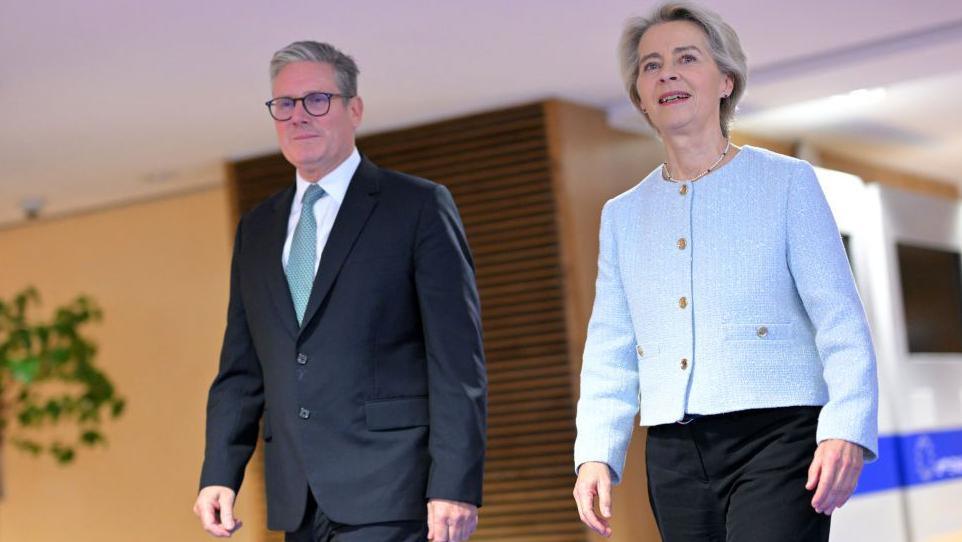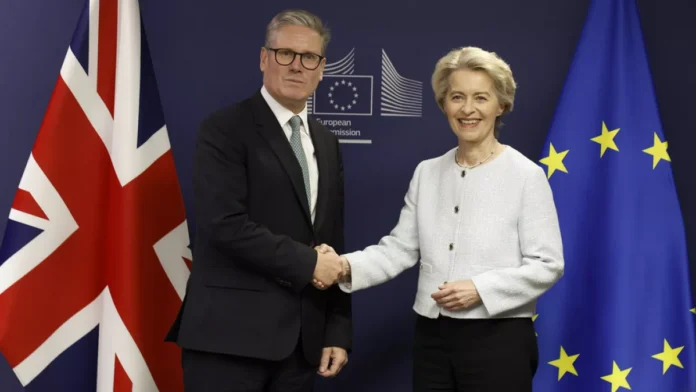As part of a broader diplomatic recalibration, Keir Starmer is poised to introduce a Youth Mobility Scheme aimed at fostering closer UK-EU relations. The plan, reportedly set for discussion at a pivotal London summit on May 19, mirrors Australia’s existing model, addressing labour shortages while unlocking cross-border opportunities.
Core Proposal
Under the initiative, thousands of young EU nationals could live, work, or study in the UK for up to two years, with an optional one-year extension. In exchange, British citizens aged 18–30 would receive reciprocal access to EU nations, fortifying international ties.
Visa Caps & Conditions
While opening doors for youth mobility, the proposal imposes constraints. A cap will regulate annual admissions, responding to Home Office concerns over immigration figures. Participants will pay an NHS surcharge but remain ineligible for welfare benefits—an assurance designed to temper public apprehensions about the scheme’s socioeconomic impact.
Policy Shift & Resistance
Previously, UK authorities resisted calls for a youth mobility framework, despite persistent European advocacy. The scheme’s emergence marks a policy shift, but tensions persist. Key sticking points include healthcare levies and tuition disparities for non-British students. Notably, the UK already extends youth mobility visas to select nations, including Australia, New Zealand, South Korea, and Hong Kong.
Economic Implications
Labour shortages have plagued industries like hospitality and agriculture, exacerbated by Brexit’s restrictions on free movement. This scheme could inject much-needed manpower into the UK workforce, bridging critical employment gaps. Public sentiment appears favourable—polls by Best for Britain suggest 60% voter approval.

Naomi Smith, CEO of Best for Britain, lauded the proposal, calling it a pragmatic response to business demands and youth aspirations:
“If these reports hold true, this represents a welcome and rational move by the government to reinstate opportunities for young Brits while supporting industries in dire need of workers.”
European Concerns
Despite optimism, friction remains. EU counterparts, including Germany, Poland, and Romania, express reservations over Britain’s proposed restrictions—particularly caps and healthcare surcharges—arguing they may curtail talent flow rather than facilitate it.

A Broader Diplomatic Reset
This initiative forms part of a wider UK-EU policy reconfiguration. Other ongoing negotiations include food safety regulations, carbon trading, and the ever-contentious fishing rights debate. With the May summit looming, both parties face tough compromises to shape a mutually beneficial agreement.
For Starmer, rekindling European cooperation is a post-Brexit imperative. If realised, this scheme could be a cornerstone in reinvigorating UK-EU relations, offering tangible benefits for young professionals and businesses alike. Yet, as with all international negotiations, the devil remains in the details.

